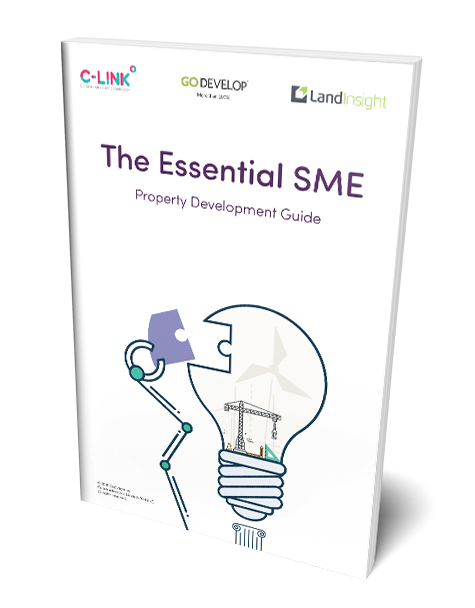When a Health and Safety Inspector Calls

- blog
- >
- health-safety-inspector-calls
The Health and Safety Executive (HSE) have been tasked with keeping people safe and healthy while at work since 1975. They are the body responsible for the encouragement, regulation and enforcement of workplace health, safety and welfare, and for research into occupational risks in Great Britain.
To do this, HSE inspectors conduct numerous site visits throughout the year. Some of these may be unannounced, but all inspectors must follow the government’s code of practice on entering homes and businesses.
Recently, the HSE have revised their guidance on what to expect ‘When a Health & Safety Inspector Calls` (HSC 14). The guidance is for all businesses that have duties under health and safety legislation. The guidance covers information on the following:
During a Visit
The inspector will look at how you keep your employees, and anyone who may be affected by your work, healthy and safe. Areas that may be discussed and/or inspected include:
- Type of work that is conducted by your business
- The main health and safety issues in your workplace
- Identifying any possible health risks arising from the tasks
- Inspection of any machinery or other equipment
- Provision of suitable welfare facilities
- Review of records or other documents
- Your own knowledge or experience of health and safety
- Talking to your employees or their representatives during the visit
The inspector may give you advice on health and safety, take photographs as part of their requirement to gather evidence or discuss safety standards, guidance and everyday practices in your industry.
What if There Is Something Wrong?
The inspector may take action if they find your business is breaking the law during the visit. They may also tell you to immediately stop a dangerous activity in your workplace.
Afterwards
After the walk round, the inspector may issue one or more of the following:
- Advice – verbally or in writing, about some improvements you could make to health and safety in your workplace. This advice is free.
- A notification of contravention (NoC) – is a document or letter that states how your business is in ‘material breach’ of the law. It will explain how you have broken the law and what you need to do to stop. If the inspector gives you a NoC, you will have to pay for the cost of the inspection.
- An improvement notice – details what is wrong; the recommended corrective action; and how long you have to improve. The HSE will give you at least 21 days to make any changes, however you will commit a criminal offence if the improvements are not made in the given time.
- A prohibition notice – is given if there is a risk of serious personal injury now or in the future. A prohibition notice orders you to stop works immediately until the corrective action has been implemented and the activity made safe to continue. A criminal offence is committed if you do not comply with a prohibition notice.
- Prosecution – for breaching health and safety laws or failing to comply with an improvement notice or a prohibition notice. The courts can issue a fine or in some cases a prison sentence.
If you do not agree with the notice that has been served, the decision can be challenged. Contact your inspector or their manager to review the decision, before starting any formal dispute
Recovering Costs – ‘Fee for Intervention’
If you are issued with a NoC, you will have to pay a fee. This is called a ‘fee for intervention’ (FFI), which must be paid within 30 days of receipt. The FFI can vary as the cost is for the inspector’s time for the entire original inspection, for example:
- Inspection at your business
- Preparation of reports
- Receiving specialist advice
- Discussing the outcome of the visit and report with you.
- Briefing your employees
Disputing an Invoice
If you disagree with anything on your FFI invoice, you can query it with the FFI Invoice Dispute team, which costs nothing. If you disagree with the response to the query, you can raise a dispute with FFI Invoice Dispute team. This must be done in writing. A disputes panel, completely independent of the HSE, will consider your dispute and write back to you informing you of the outcome.
Complaints
Complaints about your inspection should be initially raised with your inspector’s manager. Your inspector must tell you their manager’s name. If you are not satisfied with the outcome of the discussion with your inspector’s manager or the resulting investigation into the matter, you can complain in writing to the HSE’s Chief Executive.
Following the outcome of this, if you are still not satisfied, a complaint can be escalated to the Parliamentary and Health Service Ombudsman. If you believe an HSE inspector has given incorrect or bad advice, a complaint can be made to the Independent Regulatory Challenge Panel.
For further information or advice, please contact C-Link’s Health, Safety and Training Partner, 4see. You can visit their Partner page here to gain access to exclusive C-Link discounts on 01327 811166 or email enquiry@4see.co.uk.
About Paul Heming
Paul was a Quantity Surveyor who gained 10 years experience of managing £200 million worth of flagship UK projects, including 20 Fenchurch Street and Battersea Power Station. In 2015, Paul founded C-Link with the intention of sharing his expertise of managing major projects with the SME market.
-
Free Resources

The Essential SME Property Development Guide
Download now
